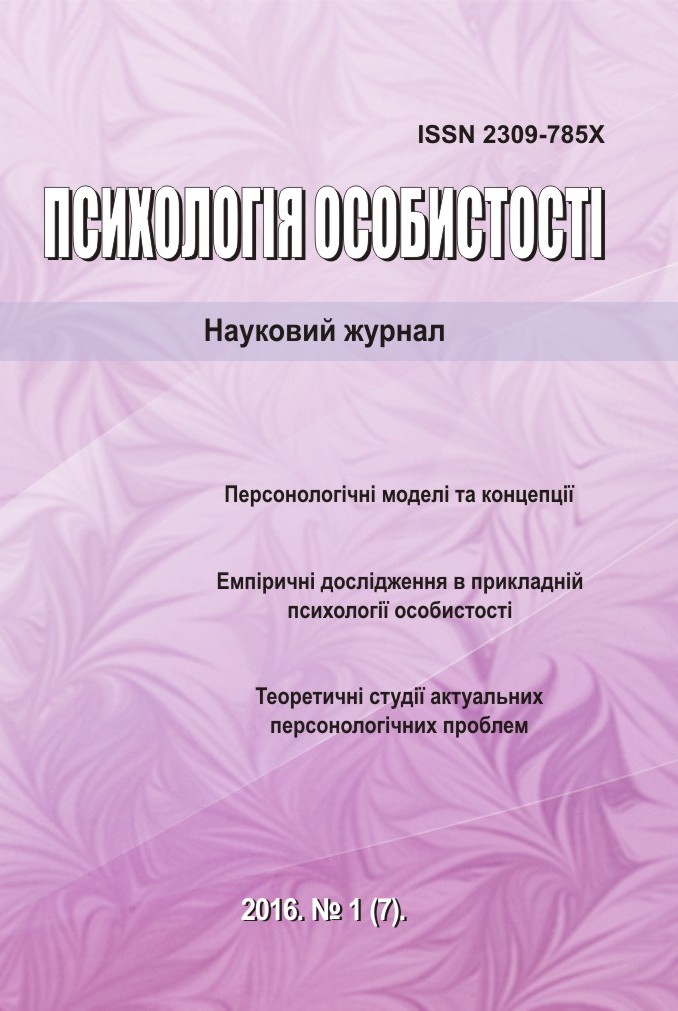ПСИХОТЕХНІКА ОПТИМІЗАЦІЇ ПРОЦЕСУ ПРИЙНЯТТЯ РІШЕНЬ У СИТУАЦІЇ СТРЕСУ
DOI:
https://doi.org/10.15330/ps.7.1.109-117Abstract
У статті актуалізовано проблему підтримання здоров’я людини шляхом використання психологічного інструментарію. Особлива увага звертається на значущість даної проблематики у контексті функціонування людини у ситуації стресу.
Опираючись на результати власного дослідницького пошуку, автор пропонує у якості способу підвищення ефективності життєдіяльності людини у ситуації стресу використовувати спеціальну психотехніку, побудовану на основі встановлених теоретично-емпіричних закономірностей зв’язку між типом психологічного часу людини і успішністю прийняття нею рішень у ситуації стресу.
Серед базових положень даної програми виділено наступні: а) перебіг стресової ситуації залежить від оптимальності прийнятих людиною рішень; б) усі люди поділяються на п’ять груп відповідно до свого типу психологічного часу; в) люди з різними типами психологічного часу демонструють різну успішність прийняття рішень у ситуації стресу залежно від часової організації ситуації прийняття рішень; г) людина здатна довільно регулювати часову організацію ситуації прийняття рішень, що створює передумови для підвищення ефективності її функціонування в ситуації стресу.
Власне учбова програма розвитку цільової навички описана згідно з етапами поступового засвоєння людьми її змісту. Дана програма буде корисною для читачів у плані розвитку індивідуальних ресурсів подолання стресу.
The article draws on the issue of maintaining well-being of a person via applying psychological tools. The emphasis is made on the significance of this issue in the context of functioning in a stressful situation.
Based on the results of the research, the authors suggest a specific psychological technique for increasing efficiency of performance of a person. This technique was developed through theoretical and empirical correlations between the type of psychological time perception of a person and the success rate of decisions made by the person in a situation of a stress.
The basic statements of the program are as follows: a) The features of the dynamics of a stressful situation depend on the optimality of the decision made;b) All people can be divided into five groups in accordance to their psychological time type; c) Individuals with different types of psychological time demonstrate different efficiency of decision making in stressful situations depending on time management of the situation of the decision making; d) A person is capable of regulating time management of the situation of decision making, and this creates conditions to enforce their functioning efficiency in the situation of stress.
The actual program for the development of the target skill is described in the article in accordance with the stages of its content development. The article will be relevant for readers in terms of development of the individual resources for overcoming stressful situations.

